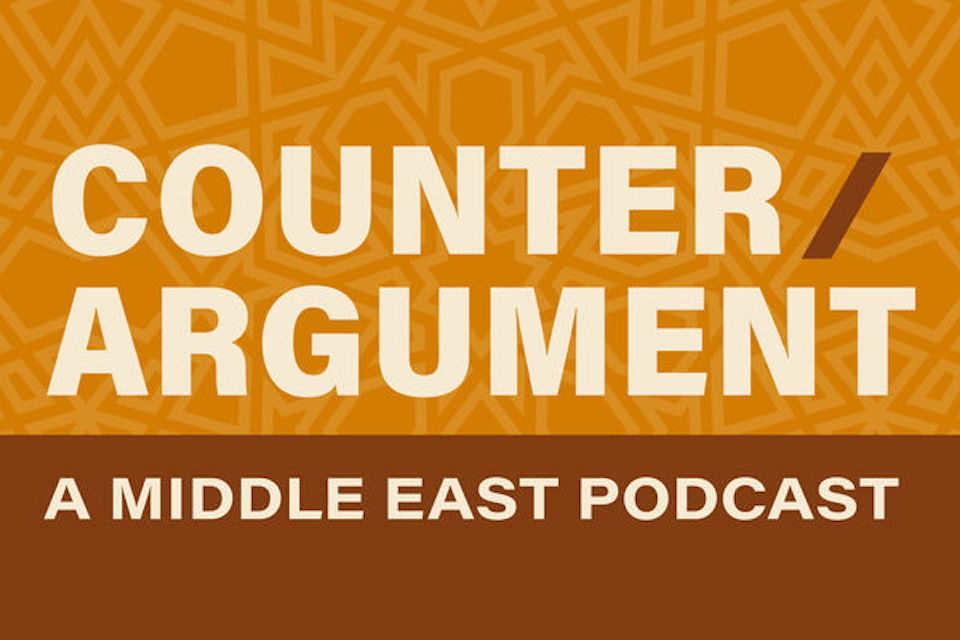A fresh perspective on the Middle East

A new podcast by Brandeis scholars aims to explore under-examined aspects of the Middle East and dispel misconceptions and assumptions.
"Counter/Argument" is produced and presented by the Crown Center for Middle East Studies.
"We're aiming for an audience that is informed and engaged. They are following the Middle East, and they want a deeper dive -- they want to hear from the experts," said Karen Spira, assistant director of the Crown Center.
The podcast is hosted by Spira; Naghmeh Sohrabi, Charles (Corky) Goodman Professor of Middle East History and director for research at the Crown Center; and Ramyar D. Rossoukh, assistant director for research at the Crown Center.
Through conversations with scholars and practitioners encompassing a variety of disciplines and perspectives, each episode debunks key misconceptions about the contemporary Middle East, while remaining committed to the Crown Center's motto of balanced and dispassionate analysis.
Five episodes have been released so far, covering topics like the broader meanings of Turkish President Recep Tayyip Erdoğan’s environmentalism, an in depth analysis of the prison system in Iran and what it means to be a political prisoner there, and the role of modern art in Middle East protest movements. The most recent episode, released April 14, is with Jillian Schwedler, professor of political science at Hunter College and non-resident fellow at the Crown Center, about the significance of popular protests in Jordan and other misconceptions about state and society in Jordan.
"Podcasting is a wonderful medium to broaden our audience," Rossoukh said. "These kinds of conversations about events and issues in the Middle East are happening among colleagues at the Crown Center every day, and they should be of concern to anyone who's interested in the region."
Starting a podcast was a logical next step for the Crown Center, which already produces written analysis of the Middle East in its Middle East Briefs and Crown Conversations. Each episode runs about 30 to 35 minutes.
With language and cultural barriers, the entry into knowledge of the Middle East can carry a high price, Sohrabi said. This can lead to misconceptions and preconceptions about what the region is about. Each episode is an opportunity to set the record straight.
“The Crown Center is full of interesting people with indispensable knowledge,” Sohrabi said. “We approach each episode as a sort of wish list of the researchers we're talking to. What are misconceptions around their expertise? What do they wish a wider audience would know?”
Categories: International Affairs, Research





